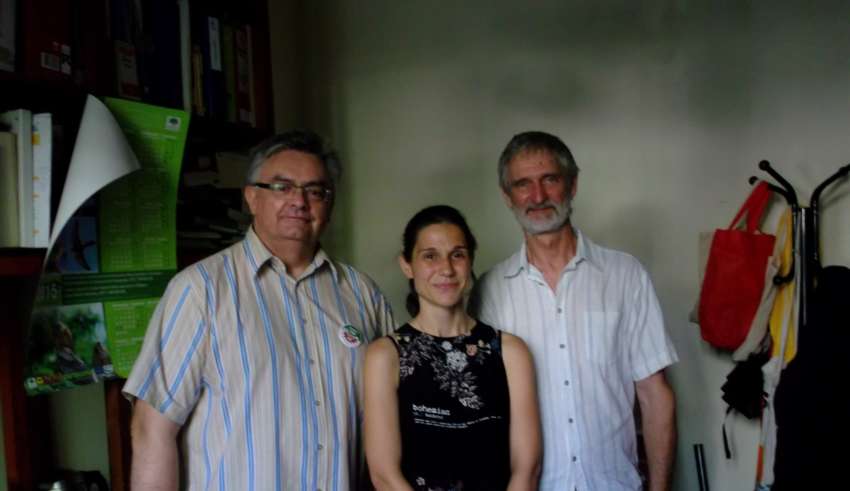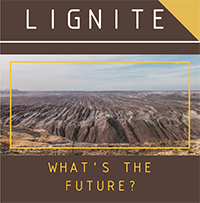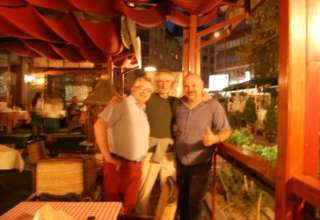
Both Za Zemiata and Greenpeace have been campaigning together for the last four years and their main goal is the gradual withdrawal of coal from the country’s electrical energy production. Both organizations have common headquarters in the heart of Sofia.
Za Zemiata is an NGO established in 1995. The organization works for sustainable development and fights against the exploitation of people and nature. Za Zemiata works with citizens’ groups all over Bulgaria as well as with many European organizations. In Bulgaria, the organization represents the CEE Bankwatch network as well as International Energy Brigades. It is also a member of the GAIA network and SEEEN (South Eastern Europe Environmental NGO). Za Zemiata has the following goals:
- Finding positive and permanent alternatives to activities that have a damaging effect on society and the environment;
- Active participation in educating civil society and raising awareness about environmental problems, as well as how to solve them;
- Collaboration with local and international NGOS.
Za Zemiata has a lot of projects, including renewable energy, transport, social participation in assessing the influence on the environment of certain investments, sustainable waste management, and climate change, and nature education.
The organization aims to produce an alternative energy strategy for Bulgaria, which will put pressure on the promotion of energy efficiency and RES as alternatives to electrical energy production by coal. With respect to this, Za Zemiata has a “Clean Energy” campaign.
The organization leads many local workshops, in order to actively engage the community to take action. Za Zemiata also created a website for Bulgarian miners so they could have access to professional information about the coal situation in the country and energy alternatives, etc. During our stay, the organization’s activists were involved in a protest against the town of Pernik (30km from Sofia), where various local groups – mostly illegally – re-opened certain open-pit mines to extract shallow lignite deposits. This phenomenon, which is tolerated by the authorities, is currently being called the “coal mafia”. It is estimated that extraction may reach several hundred thousand tons.
Greenpeace-Bulgaria (part of Greenpeace Central and Eastern Europe) has opened its office in Bulgaria in 2011. -. The organization is also part of “Climate Coalition”- Bulgaria.
In the last four years the organization has produced four reports describing the problems of burning coal in Bulgaria. The first report “The Suffocating Grip of Coal” deals with the impact of coal burning on human health. The report exposes the close links between human health and Bulgaria’s energy policy.
One of the goals of the report is to show that burning coal and its influence on air pollution is one of the main causes of many diseases in Bulgaria and Europe.
In another report, Greenpeace-Bulgaria investigates the relationship between coal and water, focusing especially on two troubling aspects of power plant activity in the country: water shortage and pollution. The research shows that this is related to the function of the coal industry – from mining and manufacturing coal to its being burned in power plants.
After researching the damaging effects of coal burning on human health and the environment, Greenpeace-Bulgaria drew attention to the government’s support of the coal sector in its third report. The goal of this report is to show the direct and indirect forms of government support which uphold the coal sector.
The last report was published in September of 2015 and deals with the pollution of the soil as a result of mining and power plant activities. It also pays special attention to mercury emissions related to coal burning – an important but unpopular topic.
Both organizations attempt to work with the government, which is not always willing to share certain data. Working with local authorities is equally difficult, as the coal lobby has a traditionally strong position in such places, especially in the Stara Zagora and Pernik regions.
Greenpeace-Bulgaria is also working on the improvement of public opinion about energy distribution, energy independence and small-scale renewable energy solutions.
The national media take a selective interest in the ecologists’ postulates. Subjects which are of interest include coal subsidies, influence on health, and mercury levels. So, local media are also not very willing to collaborate.
Both organizations are involved in a campaign aiming at closing down the oldest and most polluting power plants (e.g. Brikel, Maritsa 3, Bobov dol). These plants should have been closed a long time ago, yet there are still functioning and are one of the main causes of air pollution in the country.
Position on the International Coalition project “Development Yes – Opencast Mines No”:
- Both organizations are interested in collaborating; they believe the coalition is a good idea and necessary; they wish to remain in contact and be informed of the project’s progress;
- It is important for both organizations to collaborate at the European level;
- It is a good idea to collaborate with the European Parliament and the European Commission – both organizations have limited experience in this area;
- Both organizations are already part of an international coalition led by CAN-Europe and are cooperating with legal organizations like ClientEarth.




